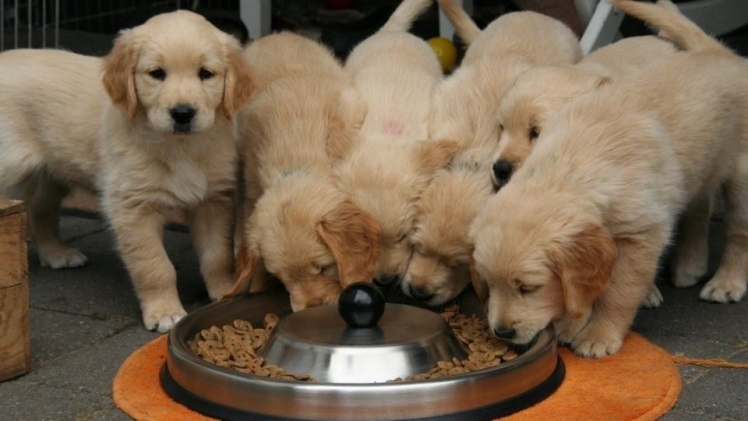Many puppies find a new home between the ages of 8 and 16 weeks, and hopefully, their breeder or rescue centre staff will tell you what they fed the dog. Ideally, you will continue to do this and gradually introduce the diet you want to provide them over a few weeks until you fully feed your puppy the diet it likes. It is essential not to change your puppy’s diet immediately because you may inadvertently cause stomach upset.
The best food is high-quality commercial kibbles designed for puppies. This ensures that all the nutrients your puppies need for growth and development are present. You can add cooked meat and vegetables or rice to your liking. However, the diet should be balanced ground food. Of course, if your dog does suffer from an upset tummy, dog insurance NZ will help you and the vet uncover the cause by helping to pay for testing and treatment.
It is not recommended that puppies eat raw food because their immune system is not developed enough to cope with the high bacterial load. It is also tough to balance the raw food intake of growing puppies. Puppies have high nutritional requirements and cannot last without food. Therefore, it is essential to eat small meals at regular intervals.
After week 16, you can gradually introduce some raw meat bones. Around this time, the permanent teeth develop, so this encourages them to chew on things other than shoes. For a puppy, one bone a week is enough. Remember, the more meat, the better.
If your puppy is possessive of his food while eating, don’t panic. Be sure to prevent your children, or anyone really, from getting too close to them while eating. Be aware that if you try to take their food they may growl or bite you. You can help prevent the development of food protection by manually feeding your puppy at an early stage.
When introducing new foods to your puppy, always pay attention to whether it has any signs of illness or pain. Like humans, dogs can be intolerant or allergic to things or certain foods. If a reaction or disease occurs, hopefully you already have affordable pet insurance to help cover the cost of treatment and the vet’s advice on what you were doing wrong. The best pet health insurance can assist in avoiding high costs and help you bear them minimally.
As the puppy grows, you can gradually reduce the number of meals to twice a day. But, first, make sure you don’t overfeed or underfeed your dog. Feeding can be tricky because most people think that larger breeds require more feeding. However, it is not always so. Overfeeding puppies can cause health problems later, such as musculoskeletal problems.
Adult dogs are usually fed twice a day. Use high-quality commercial dog food if you can’t make it yourself and ensure it is suitable for your dog’s life stage and health. Small or medium dogs are considered “adult” at 12 months of age, while large dogs take longer and do not become truly “adult” until 18-24 months.
If need be, consult with your veterinarian when to switch from puppy food to adult food. Make sure that the diet you choose is complete and balanced. You can add cooked or raw meat, as well as various vegetables or fish. Choose large, raw and meaty bones. Again, it is important not to overfeed.
Older dogs need their owners to monitor their health even more closely. Many older dogs have chronic health problems, and the diet they eat may affect or improve these problems. For some older dogs, eating smaller and larger meals will make them happy and satisfied. For others, it’s about making things the same as before. Some older dogs may need more fibre, protein or other nutrients to ensure their bodies are well taken care of.
Talk to your vet about your dog’s specific needs like food, nutrition, dog insurance NZ and much more.

